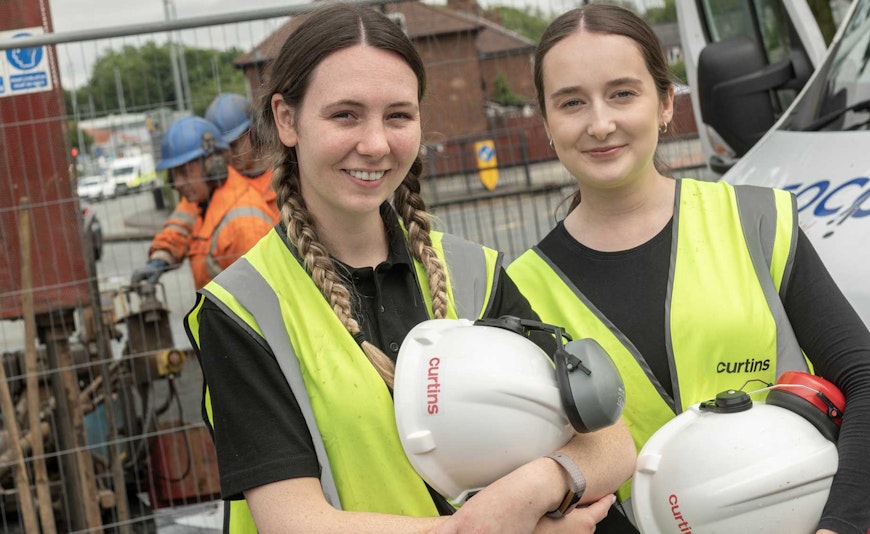Route 1: Apprenticeships
You can apply to Curtins for an Apprenticeship which will offer you practical, work-based learning, recognised qualifications and a weekly training wage from the age of 16.
Civil Engineers design and maintain roads, bridges, dams and similar structures, as well as vital underground networks that connect buildings to water and other infrastructure.
“One of my favourite things about being a civil engineer is creating a whole ‘world’ of intricate networks below the ground that are absolutely essential to any building. They can be a thing of beauty and no one will even know about it – it’s a civil engineer’s secret!”
Joshua Dodds is a Graduate Civil Engineer who joined the Curtins team in 2023. To get to where he is today, he studied Mathematics, Physics, English, Geography, IT & Product Design at school.
You can apply to Curtins for an Apprenticeship which will offer you practical, work-based learning, recognised qualifications and a weekly training wage from the age of 16.
Engineering degrees normally require an A-level or equivalent in maths, combined with other subjects depending on the discipline:
Maths + Physics / Chemistry / Geography / Economics
Design & Technology and Computer Science are also useful
You’ll also need five GCSEs grade C/4 or above including Mathematics, English and Science.
More information is available on the UCAS website.
With the theme for 2023 being ‘Skills for Life’ there is no better time to reflect on how apprenticeships support in the unlocking of individuals potential through knowledge development and transferable skills that support a rewarding and successful career.
It’s National Apprenticeship Week and we’re highlighting the value and positive impact our apprentices have on their projects, as well as the ‘skills for life’ they have developed in their programme.
Someone asked me recently how it came to pass that I chose a career in engineering, and the answer is; ‘complete fluke’.





